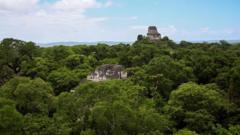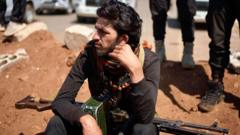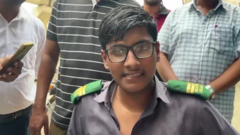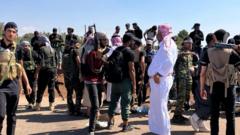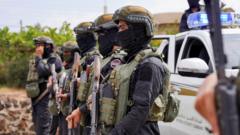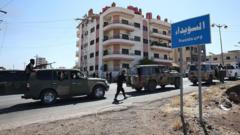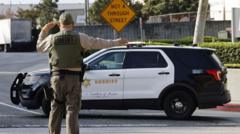In a dire effort for accountability amidst the aftermath of the Syrian civil war, Dr. Anas al-Hourani leads a team at the recently established Syrian Identification Centre, where the daunting task of identifying remains from mass graves is underway. With only a single DNA testing facility remaining in the war-torn nation, the process remains slow and painstaking due to limited resources, escalating costs, and international sanctions. Dr. al-Hourani has stated that some of the remains they are examining belong to victims killed as recently as a year ago, emphasizing the ongoing struggle for justice after 13 years of conflict that saw hundreds of thousands killed and millions displaced.
The Long Road to Justice: Uncovering Syria’s Mass Graves

The Long Road to Justice: Uncovering Syria’s Mass Graves
In Syria, the arduous journey of identifying victims from mass graves presents a formidable challenge as hundreds of thousands remain missing.
The site of several mass graves is located outside Damascus, where bones lie unearthed near a barren hilltop. Eyewitness accounts from individuals, like former military driver Abu Ali, reveal the horrific truths behind these graves, alleging that he transported hundreds of civilian corpses dumped under the repressive Assad regime. The victims were often malnourished or tortured. This chilling discovery pushes against the backdrop of Syrians grappling with unresolved fates of their loved ones.
Like many families, the story of Malak Aoude illustrates the personal toll of the war. After losing her two sons - Mohammed and Maher - to the regime's violence, she faces a heart-wrenching search for closure. Despite recent political changes, thousands of families remain unanswered as they search for missing relatives. As many express frustration over the slow pace of justice, humanity’s resilience and search for transparency persist, highlighting the deep scars left by a painful past and the need for progress in uncovering the truth.
This ongoing crisis continues to evoke a global response, compelling international agencies like the International Committee of the Red Cross to provide funding and resources, as the community strives for justice and proper identification of the victims.
With the fight for transitional justice in Syria gaining urgency, it remains evident that the existence of these mass graves serves as a stark reminder of the atrocities endured during the civil war and the relentless quest for accountability and healing.
Like many families, the story of Malak Aoude illustrates the personal toll of the war. After losing her two sons - Mohammed and Maher - to the regime's violence, she faces a heart-wrenching search for closure. Despite recent political changes, thousands of families remain unanswered as they search for missing relatives. As many express frustration over the slow pace of justice, humanity’s resilience and search for transparency persist, highlighting the deep scars left by a painful past and the need for progress in uncovering the truth.
This ongoing crisis continues to evoke a global response, compelling international agencies like the International Committee of the Red Cross to provide funding and resources, as the community strives for justice and proper identification of the victims.
With the fight for transitional justice in Syria gaining urgency, it remains evident that the existence of these mass graves serves as a stark reminder of the atrocities endured during the civil war and the relentless quest for accountability and healing.




